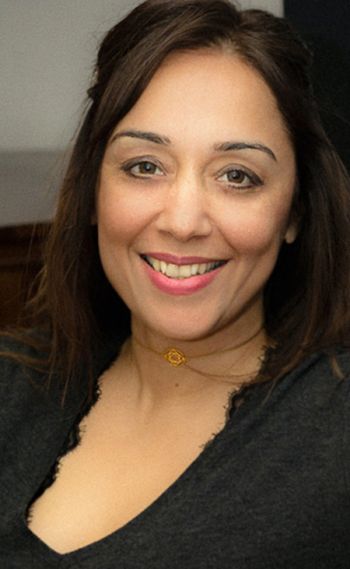Environmental Law 2.0

“You don’t want your career to ride on the coattails of something that was hot 20 years ago,” says environmental law attorney Caitlin Ajax ’17.
She’s not just talking about energy policy or industrial trends. For several years after graduating from Chicago-Kent College of Law, Ajax took what many might consider the “traditional” environmental law route.
She conducted litigation and regulatory work for a private firm dealing with well-ingrained acronyms: CAA, CERCLA, RCRA. Those would be the Clean Air Act, dealing with, well, clean air; the Comprehensive Environmental Response, Compensation, and Liability Act, overseeing Superfund cleanups and related litigation; and the Resource Conservation Recovery Act, addressing handling of waste.
But all those mouthfuls offer leaner meals these days, Ajax believes.
“It’s not to say that work will completely go away. But I don’t think there’s as much,” Ajax says. “A lot of important developments are not really happening in the regulatory space anymore. And the traditional statutory framework of American environmental law doesn’t necessarily address cutting-edge environmental issues. Regulation is important, but a lot of important developments are happening outside of government.”
In those few short years, she came to the conclusion that the kind of work that maintained attorneys 20 or even 10 years her senior would not sustain her.
On the other hand, Ajax noticed a quickly growing trend surrounding proactive sustainability work, or environmental, social, and governance (ESG). That is working with private companies who are hearing loud and clear from investors and shareholders that they want not just strategies but action—a culture that truly incorporates the ideals of environmental sustainability.
On a practical level, ignoring that trend exposes companies to greater risk these days, Ajax says.
“By looking at emissions, or a company’s vulnerability to rising sea levels, you are identifying to shareholders what your risk profile looks like, and also identifying business opportunities,” Ajax says. “It’s not just an issue of market competitiveness now, because if you’re not doing this, you’re kind of the outlier. If you’re a mid-cap to larger company, you really don’t have a choice but to engage in this conversation.”
Curt Spalding, a former regional administrator for the United States Environmental Protection Agency, is partnering with Ajax, contracting for a real estate investment trust by incorporating sustainability into the company’s culture.
“She’s kind of ahead of her time,” Spalding says of Ajax. “Over the last five years, the interest in environmental social and governance has grown by leaps and bounds.”
Take basic issues like reporting and transparency. Ajax notes that after the Gulf of Mexico oil spill in 2010, British Petroleum got a lot of bad press, and was the subject of litigation, for making sustainability-related claims that turned out to be false.
“It’s not OK for a company to say, ‘We care a lot about something,’ but not really do it,” Spalding says. “I think her law degree has given her a keen eye on how that works, explaining the larger risks for the company.”
And in the age of the internet, adds Ajax, “It’s very difficult for people to pull the wool over peoples’ eyes in terms of their practices.”
The trend has moved beyond left and right politics. Yes, former President Donald Trump backed away from environmental commitments, like when he exited the U.S. from the Paris Agreement. But many companies didn’t seem to care, Ajax notes: they moved forward with similar carbon reduction initiatives on their own.
“The market is driving this process forward,” Ajax says. “That said, with the Biden administration, there will be a lot more resources and a lot more attention paid.”
It was a bit hard at first to break into the work. Companies aren’t really looking for this kind of help from associates at big law firms, Ajax believes. And many companies aren’t looking for in-house counsels; they’re hiring sustainability experts, not attorneys, she says.
“There’s this whole generation of students in their 20s who came to college when universities were adopting sustainability programs,” Ajax notes.
She also points out she wasn’t one of them. So, she had to find a way to get her foot in the door before being pigeonholed as a more traditional environmental litigation attorney.
Through networking, she was able to partner with Spalding, who knows a lot about environmental processes, but not as much about getting corporate boards to approve them.
“I didn’t walk in knowing the process of getting these new rules set up [internally within a company],” says Spalding. “Caitlin was very versed in it. I think her law degree has given her a keen eye on how that works in larger risks for the company.”
It’s not Ajax’s only gig; she currently has a fellowship with the Conservation Law Foundation, where she develops relationships with farmers and food businesses, trying to keep their land agricultural and connecting them with attorneys to help with their legal needs. Supporting local farmers and food business, and working to decentralize food production, is important for the environment, Ajax believes.
But as for the future, she hopes to make corporate sustainability her primary focus.
“Sometimes you have to take proactive steps and break the traditional mold to make your career what you want it to be,” Ajax says.


